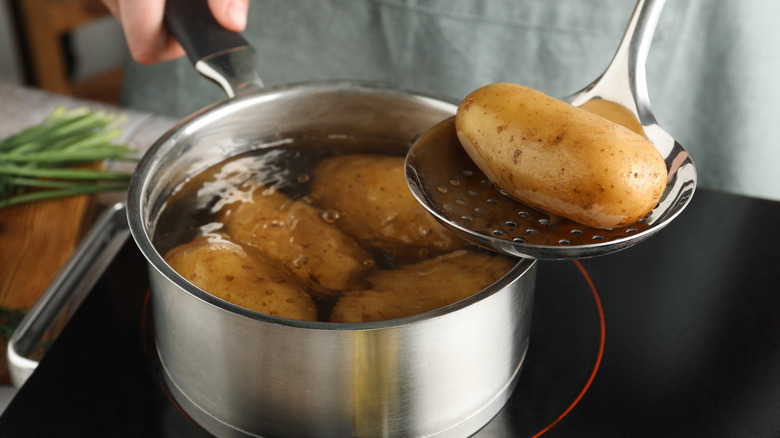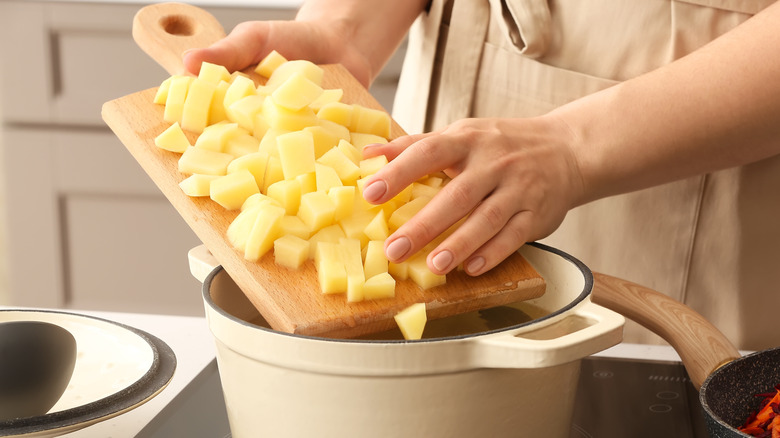The Ideal Way To Prep Potatoes For Boiling
As an ambassador for the Foundation for Fresh Produce Have A Plant, culinary expert and podcast host Andrew "Kappy" Kaplan is well-versed in serving up appetizing veggies. Boiling potatoes is as simple as gastronomic tasks get, but the ideal way to prepare them for boiling water varies according to Kaplan who said "The best way to prep potatoes for boiling depends on the final dish."
For roasted spuds, giving them a parboil helps achieve a creamy interior while crisping the skin in the oven. Unlike a loaded twice-baked potato, these should be bite-sized when served ... but that doesn't mean you should cut them beforehand. "If you're aiming for small, whole, halved, or quartered potatoes that maintain their shape, it's best to cook them whole — especially if they're on the smaller side," Kaplan said. "Once fully cooked, you can then cut them into your preferred shape."
However, "If you're working with larger potatoes like Russets, it's best to cut them into pieces before boiling," Kaplan said. "You can prep them a day or two in advance, so when it's time to cook, your potatoes are ready to go." Get a jump start by peeling and cutting the potatoes and storing them in water.
Won't boiling before cutting affect the structural integrity of the spud? Kaplan said this is nothing to worry about. "If you're par-boiling potatoes for a dish like home fries, it doesn't matter too much if they break apart, as they'll break up and crisp in the skillet anyway. And for mashed potatoes, breaking down is the goal, but cutting into like-shapes and sizes helps [achieve a] consistent cook time."
When you add the potatoes to water matters
There is always a debate about whether you should add potatoes to boiling water or begin while the pot is cold. Kaplan has taken a decided stance on the issue. "First and foremost, I always start potatoes in cold water," he said. "Add enough water to cover them by a few inches, then turn the heat to high and bring it to a boil."
As the 'taters are simmering, it's a good idea to incorporate some flavor. Kaplan said, "Once the water reaches a rolling boil, generously salt it, stir, and continue boiling until the potatoes are cooked through (unless you're par-boiling for another purpose)." But why not salt beforehand? "The reason for salting the water after it boils is that if added too early, the salt can sink to the bottom and potentially cause scars in your pot. Plus, it dissolves more quickly in boiling water."
Whether you are making some simple roasted wedges or enhancing mashed potatoes like the French do, it all starts with boiling them correctly. Still, you shouldn't fret if you execute a step out of order. Beginning with cold liquid is ideal, but it is not a hard and fast rule. Kaplan said, "LOOK, the potato police aren't coming for you if you toss potatoes into boiling water, but I will tell you they cook nice and evenly when started in cold water."

